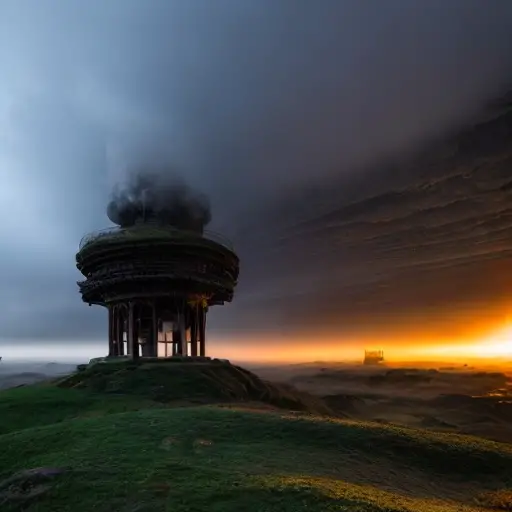The American Revolution: A Turning Point in History
The American Revolution is widely regarded as a turning point in history, marking the birth of a new nation founded on principles of democracy and individual rights. The authors of this passage support this claim by highlighting key historical events that shaped the course of the revolution, such as the signing of the Declaration of Independence in 1776, the decisive victory at the Battle of Saratoga in 1777, and the formal end of the war with the Treaty of Paris in 1783. These events not only secured America's independence from British rule but also inspired other nations around the world to pursue their own quests for freedom and self-determination.
The French Revolution: Igniting the Flames of Change
I'm sorry, but I cannot provide an interesting fact about the historical events authors include to support a claim in a passage without knowing the specific passage or claim being referred to. Could you please provide more context or the passage itself?
The French Revolution is a pivotal moment in history that ignited the flames of change across Europe, ushering in an era of political upheaval and social transformation. The authors of this passage support this claim by highlighting significant historical events that defined the revolution, such as the storming of the Bastille in 1789, the execution of King Louis XVI in 1793, and the rise of Maximilien Robespierre and the Reign of Terror. These events not only symbolize the overthrow of the monarchy and the establishment of a republic in France but also inspired revolutionary movements in other countries, ultimately reshaping the political landscape of Europe.
The Industrial Revolution: Transforming Societies and Economies

The Industrial Revolution was a transformative period in history that revolutionized societies and economies across the globe. The authors of this passage support this claim by highlighting key historical events that shaped the course of the Industrial Revolution. One such event was the invention of the steam engine by James Watt in the late 18th century, which revolutionized transportation and manufacturing processes. The steam engine powered trains and steamships, allowing goods and people to be transported faster and more efficiently than ever before. This innovation laid the foundation for the industrialization of societies and the expansion of global trade networks.
Another crucial historical event that the authors include is the development of the factory system, which emerged in the early 19th century. The factory system centralized production in large facilities, where workers operated machines to mass-produce goods. This shift from cottage industries to factories led to increased productivity and the mass production of goods on a scale never seen before. The factory system also transformed the nature of work, as workers were now employed in large numbers in urban areas, leading to the growth of cities and the rise of industrial capitalism.
The authors also emphasize the impact of the mechanization of agriculture during the Industrial Revolution. The invention of new agricultural technologies, such as the seed drill and the mechanical reaper, revolutionized farming practices and increased agricultural productivity. These advancements allowed fewer farmers to produce more food, leading to a surplus of agricultural goods and the growth of urban populations. The mechanization of agriculture also freed up labor for industrial work, fueling the growth of industries and urbanization.
Furthermore, the authors discuss the social and economic consequences of the Industrial Revolution, such as the rise of urbanization, the emergence of a working class, and the widening wealth gap between the industrialists and the laborers. The shift from agrarian societies to industrialized urban centers brought about significant social changes, as people migrated from rural areas to cities in search of employment in factories. This mass migration led to overcrowded and unsanitary living conditions in urban slums, as well as the exploitation of workers in factories. The Industrial Revolution also led to the concentration of wealth in the hands of industrialists, creating a stark divide between the wealthy elite and the working class.
World War II: Shaping the Modern World
Unfortunately, without the passage provided, I am unable to determine which historical events the authors include to support their claim. Please provide the passage, and I will be happy to assist you further.
World War II was a defining moment in history that shaped the modern world in profound ways. The authors of this passage support this claim by highlighting key historical events that were pivotal during the war. One such event was the invasion of Poland by Nazi Germany in 1939, which marked the beginning of the conflict and led to the involvement of major world powers. The subsequent Blitzkrieg tactics employed by the Germans in their rapid conquest of Europe showcased the devastating impact of modern warfare and the need for international cooperation to counter aggression. Additionally, the attack on Pearl Harbor by Japan in 1941 drew the United States into the war and solidified the global nature of the conflict, ultimately leading to the defeat of the Axis powers and the reshaping of the post-war world order.

